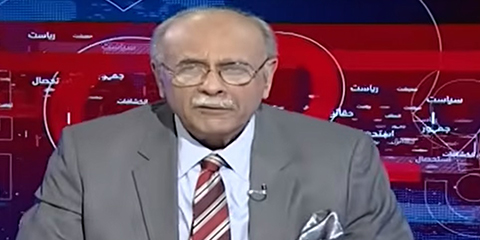Vanishing voices: The fall of investigative journalism in Pakistan
JournalismPakistan.com | Published last year | Tariq Ali
Join our WhatsApp channel
ISLAMABAD—Investigative journalism has long been a pillar of a vibrant and democratic society. It serves as a watchdog, holding the powerful accountable and bringing crucial issues to light. In Pakistan, however, this form of journalism is increasingly under threat. This article delves into the reasons behind the decline of investigative stories in Pakistani media and explores potential solutions to revive this critical aspect of journalism.
Pakistani media once boasted a robust tradition of investigative journalism. Key milestones include the exposure of major corruption scandals and human rights abuses, which not only informed the public but also prompted significant political and social changes. Prominent journalists and media houses were celebrated for their courage and dedication to uncovering the truth.
Decline of Investigative Journalism
Over the past decade, signs of decline have become evident. While investigative journalism faces challenges worldwide, the situation in Pakistan is particularly acute. The initial signs of this decline were subtle but have since escalated, leading to a significant reduction in the number of in-depth investigative pieces.
Economic Pressures
One of the primary reasons for the decline is economic pressure. Pakistani media heavily depends on advertising revenue, which makes them vulnerable to the interests of advertisers. Media ownership is increasingly concentrated in the hands of a few powerful individuals and conglomerates, creating monopolies that prioritize profit over public interest.
Political Influence and Censorship
Government influence and censorship are also significant factors. The Pakistani government has a history of exerting control over the media, either directly or through various regulatory bodies. This control often leads to self-censorship among journalists who fear repercussions for reporting on sensitive topics.
Safety Concerns for Journalists
Safety concerns further exacerbate the problem. Journalists in Pakistan face threats, attacks, and legal battles that make investigative reporting a perilous endeavor. The risks involved discourage many from pursuing in-depth investigations, leading to a decline in the quality and quantity of such reports.
Technological Shifts
The rise of digital media and social media platforms has shifted the landscape of journalism. While these platforms offer new opportunities for dissemination, they also pose challenges. The quick, click-driven nature of online media often favors sensationalism over the painstaking work of investigative journalism.
Lack of Resources
Investigative journalism is resource-intensive. Financial constraints and limited access to necessary tools and training hinder the ability of journalists to conduct thorough investigations. Media houses often lack the funds to support long-term investigative projects, leading to a focus on more immediate, less costly news.
Public Interest and Consumption Patterns
Public interest has also shifted. There is a growing preference for sensational and entertainment news over serious investigative reports. This change in consumption patterns affects the media's content decisions, pushing investigative journalism to the sidelines.
Regulatory Environment
The regulatory environment in Pakistan further complicates the situation. Press laws and regulations can be restrictive, limiting the freedom of journalists to pursue certain stories. Regulatory bodies sometimes act in ways that stifle journalistic independence and discourage investigative work.
Disappeared Investigative Stories
Several high-profile investigative stories have disappeared from Pakistani media, often due to external pressures. For instance, investigations into corruption within powerful institutions or controversial political issues are frequently shelved or downplayed, highlighting the dire state of investigative journalism.
Efforts to Revive Investigative Journalism
Despite these challenges, efforts are being made to revive investigative journalism in Pakistan. NGOs and independent organizations play a crucial role in this revival. They provide training, support, and funding for journalists to pursue investigative work. Workshops and seminars aim to equip journalists with the skills needed to tackle complex stories.
Looking ahead, there is hope for the revival of investigative journalism in Pakistan. Potential solutions include increasing financial support for independent media, enhancing legal protections for journalists, and fostering a culture that values and supports investigative reporting. International organizations can also offer support through funding, training, and advocacy.
The disappearance of investigative stories from Pakistani media is a multifaceted issue, driven by economic pressures, political influence, safety concerns, and changing public interests. However, with concerted efforts from various stakeholders, there is potential to revive this crucial aspect of journalism. The public, media organizations, and international bodies need to work together to support and protect investigative journalists in Pakistan.

























